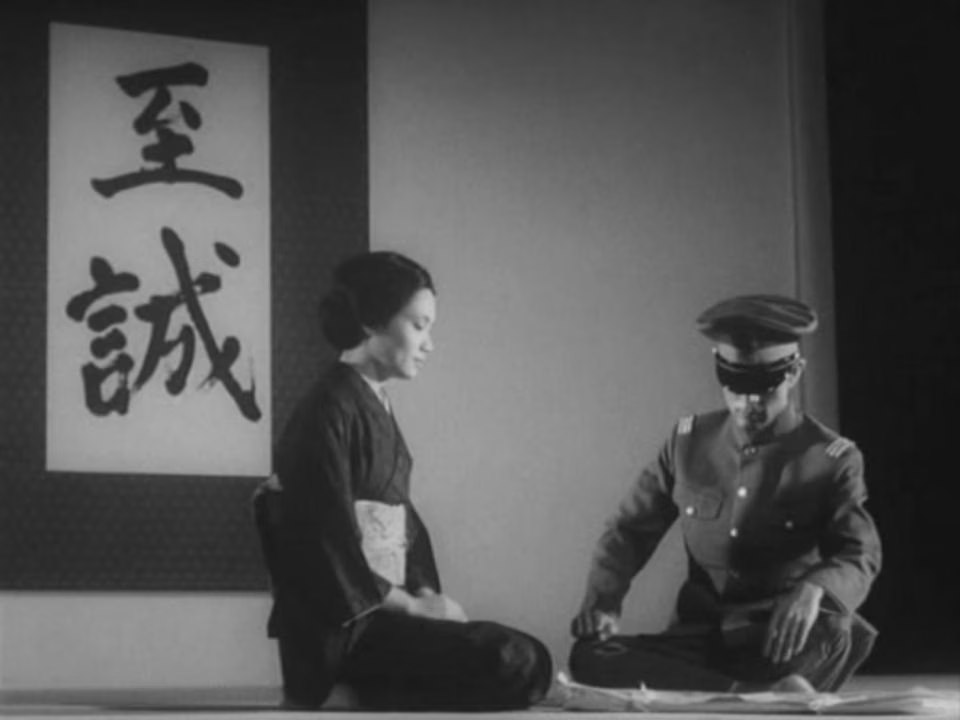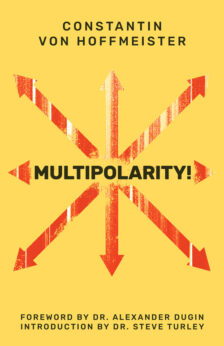Japanese writer, intellectual and political activist Yukio Mishima (1925-1970) is rightfully considered one of the most significant cultural heroes of the Right in the 20th century, and his work and amazingly vivid life path are an example of a consistent connection between thought and action. During his life, Mishima went through a series of internal transformations reflected in his work, which guided him closer and closer to the bright finale of life, which he conceived and realised as the highest and culminating moment of personal existence.
At the same time, from an early age, he was fascinated by one ideal, which during his life he comprehended deeper and deeper — the ideal of samurai ethics, formulated in the medieval treatise Hagakure (‘Hidden by the Leaves’) (葉隱) by Yamamoto (Jōchō) Tsunetomo, to which the Japanese writer dedicated a small later essay entitled ‘Hagakure nyūmon’ (‘My Hagakure’) (葉隠入門) first published in 1967, three years before the writer’s suicide. In a series of three articles for Arktos Journal, we will consider the three main philosophical aspects of this famous treatise on fundamental issues of human existence through the prism of Yukio Mishima’s deep view: ‘Philosophy of Love’, ‘Philosophy of Action’, and, finally, ‘Philosophy of Life and Death’.
The significance of the philosophy of love, which is not always noticed in this work, is reflected by Mishima even in the discussion about the title of the treatise. He writes, ‘The book that we know as Hagakure was originally called The Collection of Sayings of Master of Hagakure. But this title was shortened to one word in the first edition of the book, edited by the young samurai Tsuramoto Tashiro, the man who wrote down the teachings of Jōchō. Since then, several hypotheses have been put forward to explain the meaning of the word Hagakure (literally: ‘hidden among the leaves’), but so far researchers have not come to a consensus. There is, for example, a version according to which this name was chosen to convey the atmosphere of the poem by the priest Saigyō (poet-monk of the late Heian period and the early Kamakura period), which was included in the collection Sanka wakashū. The poem is entitled “A Message to My Beloved on the Day When There Are Only a Few Petals Left”:
In a few trembling petals,
Hidden among the leaves,
How much do I feel
The presence of the one,
Whom I secretly miss!
Thus, the motive of love may have inspired the very name of the famous treatise. Yukio Mishima, commenting on this topic in ‘Hagakure nyūmon’, writes the following:
The Japanese have a tradition of romantic love and a special designation for this love (ren:ai) (恋愛). In old Japan, love (ai) (愛) was almost unknown. In those days, people only knew passion, which was dominated by sexual aspirations. In the West, since the time of Ancient Greece, it has been customary to distinguish between eros (sexual love) (ἔρως) and agape (divine love) (ἀγάπη). Eros was initially viewed as a carnal desire, but gradually acquired a broader meaning and entered the realm of Platonic ideas — that is, entities comprehended only by reason. Agape is spiritual love, completely separated from carnal desire.
It was agape that was later called Christian love. In accordance with European traditions, eros and agape have always been considered opposites. The worship of a woman in medieval chivalry was based on the cult of the Virgin Mary (eros), but it is also true that the highest ideal of chivalrous love is agape, and complete freedom from eros.
When love for a woman or a young man is pure and chaste, it is no different from the devotion of a samurai to his master. This idea of love without distinction between eros and agape at the end of the Tokugawa period was called “love for the Imperial family” (ranketsu:no:jo) and was the basis for the worship of the Emperor.
After the war, the imperial system of government became a thing of the past, but this does not mean that with it the idea of true love disappeared from the spiritual world of the Japanese. This view is based on the firm conviction that everything that comes from the depths of the heart forms an ideal to strive for and, if necessary, to die for.
Thus, Mishima places important accents: love is of high value when it is sincere (comes from the depths of the heart) and can represent an ideal for which it is necessary to sacrifice something. At the same time, despite the lack of manifestation, in Mishima’s opinion, of love as ai in classical Japanese literature, Hagakure formulated the highest ideal of romantic love:
According to Bunsō Hashikawa, Hagakure is perhaps the only work of classical Japanese literature that contains a consistent theory of romantic love. The ideal of love formulated in Hagakure can be briefly expressed in the words “secret love”, because the expressed love inevitably loses its dignity. True love reaches its highest and noblest ideal when a person takes its secret with him to the grave.
According to Hagakure in Mishima’s interpretation, genuine love that wants to preserve dignity is never fully expressed. In addition to the purely romantic aspect, in such an understanding of love we can see an initiatory character that awakens transcendent layers of being in the lover, as the classics of Traditionalism wrote about (in particular, Julius Evola revealed this issue in the works Metaphysics of Sex and Ride the Tiger). Mishima in ‘Hagakure nyūmon’ explains this aspect of the philosophy of love as follows:
The art of romantic love, which flourishes in America, implies recognition, as well as courting and pursuing the object of love. At the same time, people do not accumulate the energy of love in themselves; it is constantly radiated outwards. But paradoxically, the thrill of love fades away at the moment of transmission. Today’s youth can afford love and sexual adventures that previous generations could not even dream of. But at the same time, there is no more room in the hearts of young people for what we call romantic love. Even if romantic love is born in the heart, it always acts straightforwardly. It repeats the process of achieving the goal until it fades away completely. At the same time, passion dies and the inability to love fully manifests itself — which we often hear about in our age. It would not be a mistake to say that the main reason for this is the inconsistency of the modern ideal of romantic love.
This inconsistency lies both in the thirst for the rapid possession of the object of lust, and in the fact that modern man is not inclined to distinguish love from physiological sexual desire (which, again, according to Evola, is one of the signs of the ‘Iron Age’). Observing this in Japan in the 1960s, Mishima notes,
Before the war, young people had an idea of the difference between romantic love and sexual desire and always found a reasonable middle ground between them. Young people went to university, and their undergraduate friends took them to a brothel, where they learned to satisfy lust. But at the same time, these young men did not dare to touch the woman they truly loved. Thus, love in pre-war Japan did not exclude prostitution, but at the same time preserved the old “puritanical” traditions. As soon as we recognize the existence of romantic love, we understand that men should be able to satisfy carnal desires. Without this, true love is impossible. This is the tragic side of male physiology.
One can agree or disagree with Mishima’s last statement; other classics of the Right (the already mentioned Julius Evola and Miguel Serrano, about whom I wrote for Arktos Journal not so long ago) pointed to other aspects and possibilities of disposing of sexual energy in addition to its physiological quenching in meaningless circumstances. At the same time, the key aspect that Mishima sees in Hagakure in relation to genuine love unites all the classics of the Right of the last century — love is perceived as a force and energy of a special kind, which should be saved and cherished, and which does not tolerate insincerity. Such love is so valuable that, if necessary, one should die for it.
Mishima points out,
Romantic love, in Jōchō’s understanding, is not a strategy aimed at preserving this modern, pragmatic, flexible distribution of roles. Romantic love draws its power from death. A man must die for his love, and therefore death purifies love and makes it tremulous. Hagakure says it’s the perfect love.
Thus, the theme of love turns out to be closely related to other important topics of Hagakure, marked by Mishima — the theme of action and the theme of life and death. We shall talk about these in future articles for Arktos Journal.








